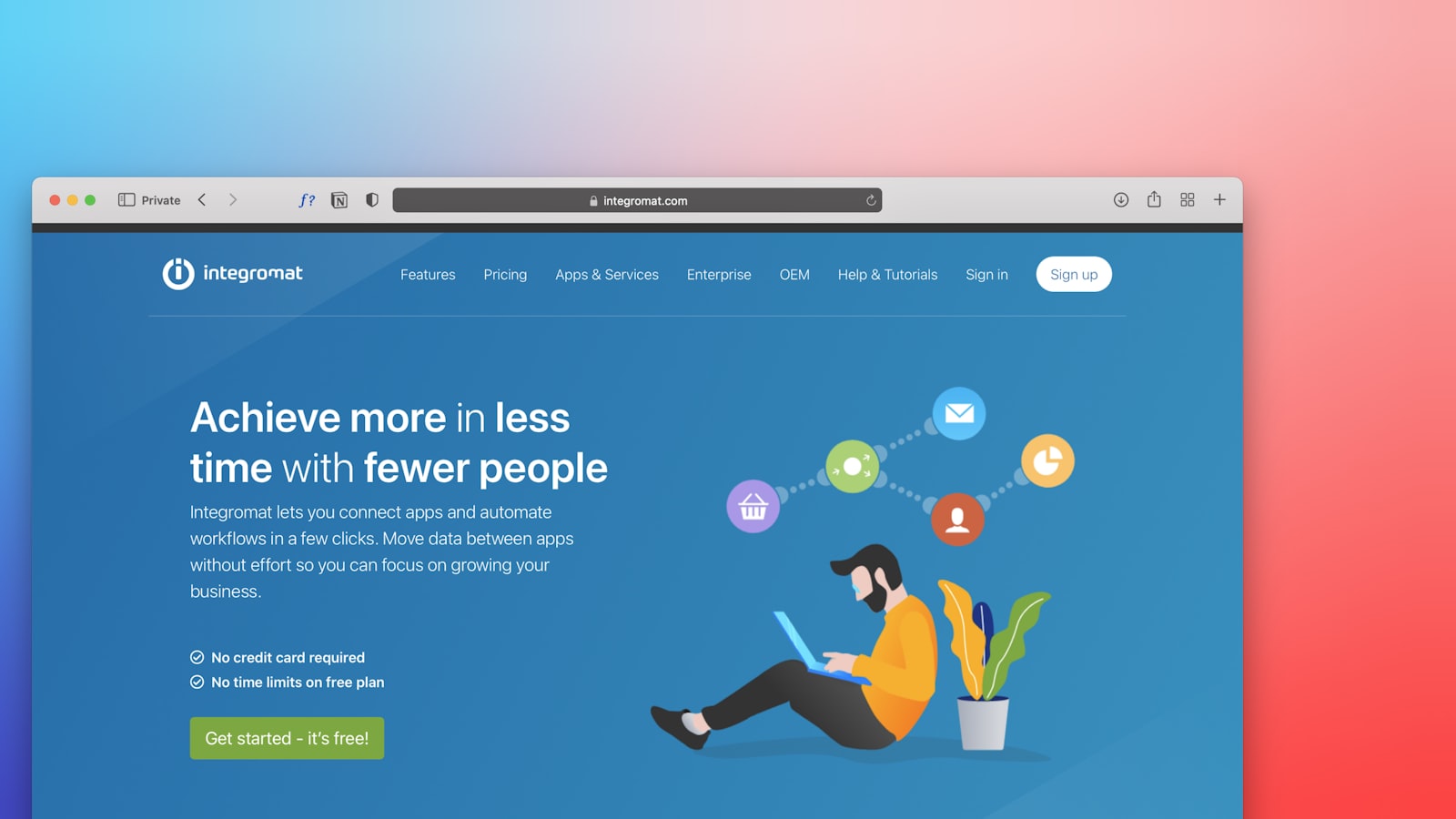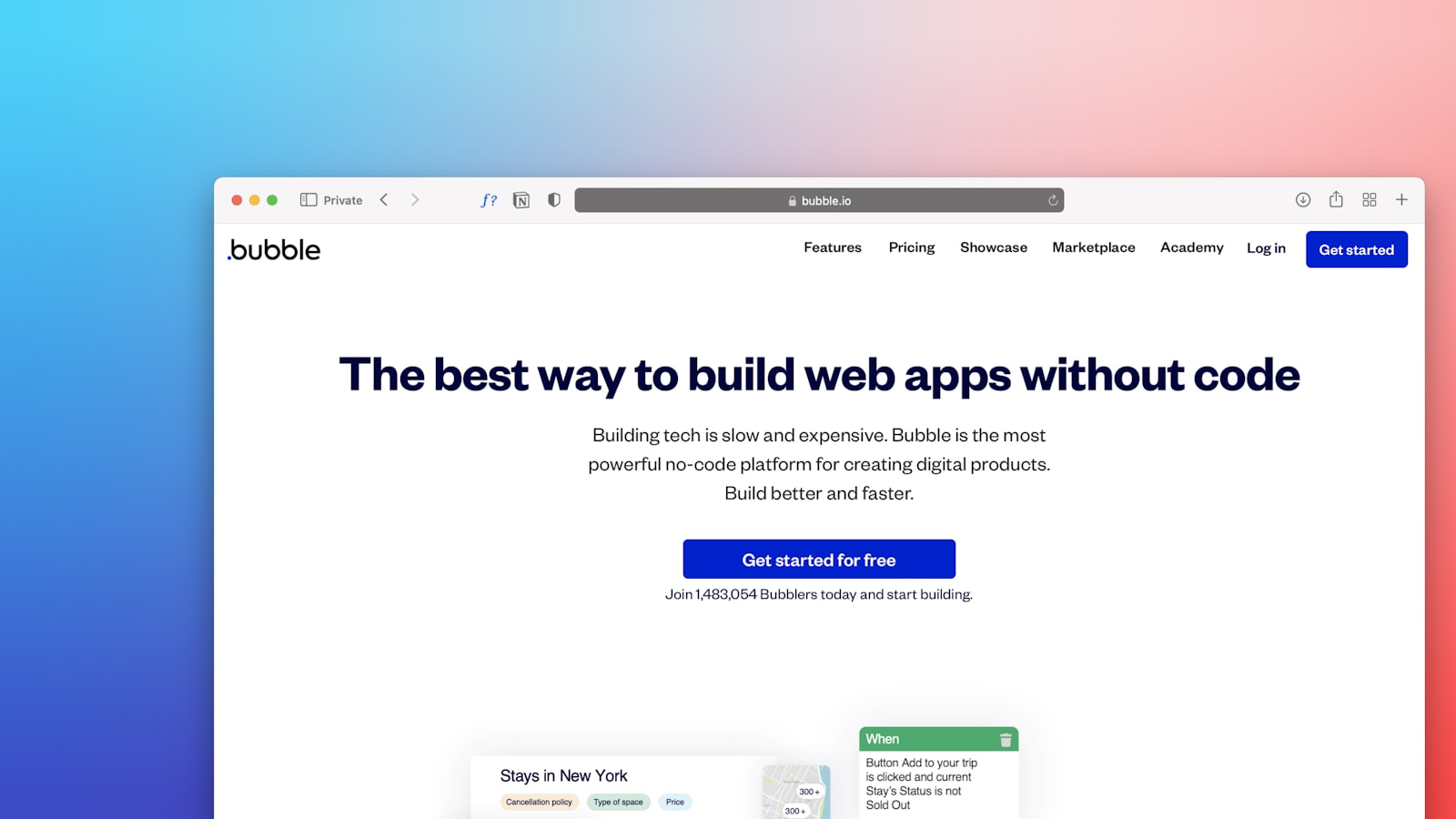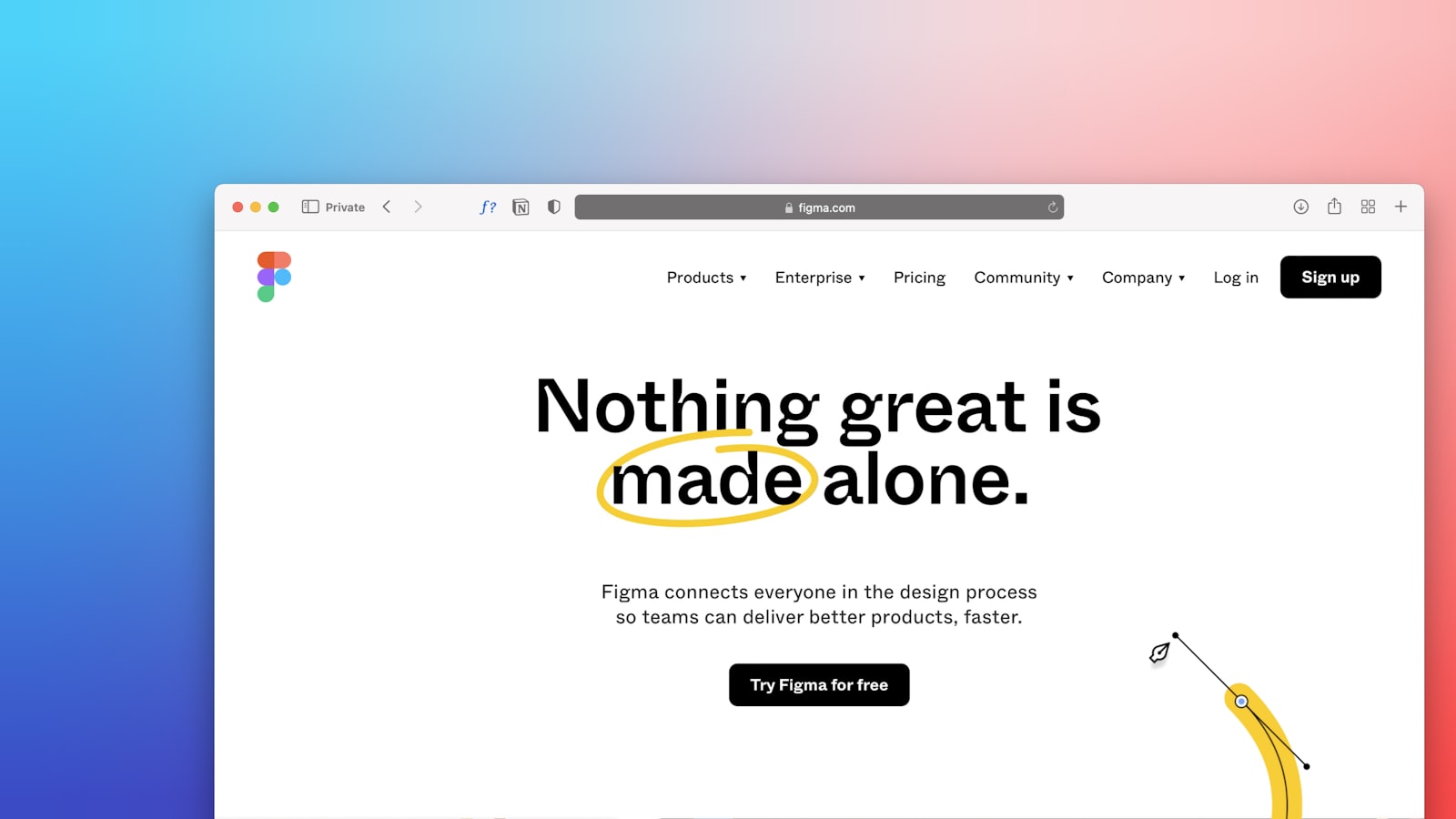10 Marketing RFP Pitfalls to Avoid for Better Agency Partnerships
10 Marketing RFP Pitfalls to Avoid for Better Agency Partnerships
10 Marketing RFP Pitfalls to Avoid for Better Agency Partnerships
Discover 10 common marketing RFP pitfalls and learn how to avoid them for more successful and effective agency partnerships.
Discover 10 common marketing RFP pitfalls and learn how to avoid them for more successful and effective agency partnerships.



Introduction
Ever tried to bake a cake without a recipe? Your marketing RFP (Request for Proposal) is pretty much the same thing. Without a well-crafted RFP, you risk ending up with a half-baked agency partnership that leaves a sour taste in everyone’s mouth. And let's face it, nobody likes a sour cake.
Importance of a Well-Crafted RFP
A solid marketing RFP is your golden ticket to finding the perfect agency partner. It's not just a formality; it's a roadmap that ensures everyone’s on the same page, from the initial briefing to the final handshake. A well-crafted RFP eliminates guesswork, sets clear expectations, and paves the way for a fruitful collaboration. Think of it as your marketing GPS – without it, you're likely to get lost.
Overview of Common Pitfalls
But beware, the RFP process is riddled with traps that can derail even the most promising partnerships. From vague requirements to unrealistic timelines, these pitfalls can turn your dream project into a nightmare. In this article, we’ll walk you through the top 10 marketing RFP pitfalls to avoid, ensuring your agency partnerships are smooth sailing. Buckle up, because we're about to navigate through some choppy waters – and come out the other side with a stellar RFP.
What is an RFP and Why is it Important?
Definition of an RFP
An RFP, or Request for Proposal, is a document that organizations use to outline their project requirements and solicit bids from potential vendors. Essentially, it's a formal invitation for vendors to submit proposals on how they would address the organization's needs. The goal is to gather detailed information on each vendor's approach, pricing, and qualifications, allowing the organization to make an informed decision.
Importance of a Thorough RFP
A well-crafted RFP is crucial for several reasons:
Transparency: It ensures all vendors have the same information, making the selection process fair and transparent.
Benchmarking: It sets clear criteria for evaluating proposals, helping to compare apples to apples.
Understanding: It helps gauge how well a vendor understands the project requirements and their ability to meet them.
First Impressions
First impressions matter, and your RFP is often the first interaction a vendor will have with your organization. A poorly written RFP can signal disorganization or lack of clarity, potentially deterring high-quality vendors from participating. On the flip side, a well-structured RFP can attract top-notch vendors who are eager to work with a professional and organized client.
Clear Communication of Goals and Expectations
One of the most important aspects of an RFP is the clear communication of your goals and expectations. This includes:
Project Description: Provide a detailed overview of what you aim to achieve.
Budget: Be upfront about your budget to ensure vendors can propose solutions within your financial constraints.
Deadlines: Clearly outline the project timeline, including key milestones and final deadlines.
Submission Guidelines: Specify how and when vendors should submit their proposals, including any required formats or documents.
For more insights on how to select the best marketing agency for your business, check out our guide on selecting the best B2B demand generation agency.

Common Marketing RFP Pitfalls to Avoid
1. Lack of Specificity in Questions
Consequences of Generic Questions
Generic questions are like asking a chef, Can you cook? instead of Can you prepare a five-course French meal? Vague questions lead to vague answers, making it tough to assess an agency's true capabilities. This can result in selecting a partner who isn't the best fit for your needs.
Tips for Crafting Detailed and Relevant Questions
Be precise: Instead of asking about general experience, ask for specific case studies related to your industry.
Focus on outcomes: Ask how the agency measures success and what KPIs they track.
Scenario-based questions: Present a hypothetical situation and ask how they would handle it.
2. Insufficient Background Information
Importance of Providing Comprehensive Company and Project Background
An agency can't hit the bullseye if they don't know where the target is. Providing detailed background information helps agencies tailor their proposals to your specific needs, ensuring a better fit and more effective solutions.
What Information to Include
Company history and mission
Project goals and objectives
Current challenges and pain points
Target audience and market specifics
3. Not Providing Access for Audits
Benefits of Allowing Agencies to Audit Current Practices
Think of it like a mechanic checking under the hood before making repairs. Allowing agencies to audit your current practices gives them a clearer picture of your needs and helps them propose more accurate and effective solutions.
How to Grant Access Securely
Use NDAs to protect sensitive information
Provide temporary, read-only access to necessary data
Set clear boundaries on what can and cannot be accessed
4. Undefined Budget
Why a Clear Budget is Crucial
Imagine going to a car dealership without knowing how much you can spend. A clear budget helps agencies propose realistic solutions within your financial constraints, saving time and avoiding disappointment.
How to Determine and Communicate Your Budget
Analyze past project costs for reference
Consider the scope and scale of the project
Communicate a budget range to allow some flexibility
5. Requiring Unreasonable Guarantees
The Pitfalls of Demanding Guarantees
Asking for guarantees can be like asking for a weather forecast a year in advance—impossible and unreliable. Demanding guarantees can scare off reputable agencies and attract those who overpromise and underdeliver.
Alternative Ways to Set Expectations
Request detailed project plans and timelines
Ask for performance benchmarks based on past projects
Set up regular progress reviews to ensure alignment
6. Overlooking the Human Element
Importance of the Agency Team
Remember, you're not just hiring an agency; you're partnering with people. The dynamics and culture of the agency team can significantly impact the success of your project.
Questions to Ask About Team Dynamics and Culture
Who will be working on your project, and what are their roles?
What is the agency's approach to communication and collaboration?
How does the agency handle conflicts and challenges?
For more insights on selecting the right agency, check out our guide on how to select the best B2B demand generation agency.

Additional Tips for a Successful RFP Process
Streamlining the RFP Process
Streamlining your RFP process can save you time and ensure you get the best proposals. Focus on clarity and efficiency to make the process smoother for both you and the vendors.
Avoiding the Spray and Pray Approach
Sending your RFP to every agency under the sun? Bad idea. Instead, target a select group of vendors who are well-suited to meet your needs. This way, you’ll receive more relevant and higher-quality proposals.
Being Proactive in Vendor Selection
Do your homework before sending out the RFP. Research potential vendors and create a shortlist of those who have the expertise and experience that align with your project. This proactive approach can significantly improve the quality of responses.
Keeping the RFP Concise and Organized
Nobody likes reading a novel-length RFP. Keep it concise and to the point. Organize the document with clear sections and headings to make it easy for vendors to find the information they need.
Avoiding Overcomplication
Complexity can be your enemy. Avoid overcomplicating the RFP with unnecessary details or jargon. Stick to the essentials and make your requirements as straightforward as possible.
Structuring the RFP for Clarity
Structure your RFP in a logical manner. Use bullet points, numbered lists, and clear headings to break up the text. This makes it easier for vendors to understand your needs and respond effectively.
Ensuring Compliance with Guidelines
Adhering to guidelines is crucial. Make sure your RFP includes all necessary timelines and requirements. Missing these can lead to disqualification or delays.
Importance of Adhering to Timelines and Requirements
Timelines and requirements are there for a reason. Stick to them. Late submissions or incomplete proposals can derail the entire process. Make sure all parties are aware of the deadlines and what’s required.
Commonly Overlooked Details
Small details can make a big difference. Ensure you include all necessary information, such as contact details, submission formats, and evaluation criteria. Overlooking these can cause confusion and delays.
Focusing on Client-Centric Solutions
Your RFP should focus on solutions that address your specific needs. Tailor your questions and requirements to ensure vendors provide responses that are directly relevant to your project.
Tailoring Responses to the Specific Needs of the Issuer
Generic responses are a no-go. Tailor your RFP to elicit responses that are specific to your project. This helps you evaluate the proposals more effectively and choose the best fit.
Avoiding Irrelevant Information
Stick to the point. Avoid including irrelevant information that can distract from your main objectives. This keeps the RFP focused and easier to evaluate.
Thorough Review Before Submission
Before hitting send, review the RFP thoroughly. A final review can catch any errors or omissions that might have been missed. This ensures your RFP is polished and professional.
Importance of Final Reviews
Final reviews are essential. They help ensure that the RFP is clear, complete, and free of errors. This step can make a significant difference in the quality of the responses you receive.
Tips for a Thorough Review Process
Have multiple stakeholders review the RFP.
Check for clarity and completeness.
Ensure all requirements and timelines are included.
Proofread for grammar and spelling errors.
By following these tips, you can streamline your RFP process and increase the chances of receiving high-quality proposals. For more guidance on selecting the best marketing agencies, check out our articles on selecting the best B2B demand generation agency and choosing the best B2B marketing company.

Conclusion
Recap of Key Points
We've covered a lot of ground in this guide to avoiding common marketing RFP pitfalls. Here's a quick recap:
Lack of Specificity in Questions: Avoid generic questions to get more insightful responses.
Insufficient Background Information: Provide a comprehensive overview of your company and project.
Not Providing Access for Audits: Allow agencies to audit your current practices for better proposals.
Undefined Budget: Clearly communicate your budget to avoid misaligned expectations.
Requiring Unreasonable Guarantees: Set realistic expectations instead of demanding guarantees.
Overlooking the Human Element: Consider the agency team’s dynamics and culture.
Encouragement to Invest Time in Crafting a Quality RFP
Investing time in crafting a quality RFP can make all the difference in establishing a successful partnership with a marketing agency. A well-thought-out RFP not only helps you find the right agency but also sets the stage for a productive relationship. Remember, the effort you put in now will pay off in the long run.
For more tips on selecting the best agency for your needs, check out our other guides:
How to Select the Best B2B Demand Generation Agency for Your Business
How to Choose the Best B2B Marketing Company for Your Business
How to Evaluate and Choose the Best SaaS PPC Agency for Your Business

Call to Action
Invite Readers to Share Their Experiences
We'd love to hear from you! Have you had any experiences with marketing RFPs that you'd like to share? Whether it's a success story or a lesson learned, your insights can help others navigate their own RFP journeys. Drop your stories in the comments below or join the conversation on our community forum.
Offer Additional Resources or Consultation Services
Need more help with your marketing RFP? We've got you covered. Check out our in-depth guides on selecting the right agency for your business:
How to Select the Best B2B Demand Generation Agency for Your Business
How to Choose the Best B2B Marketing Company for Your Business
How to Evaluate and Choose the Best SaaS PPC Agency for Your Business
For personalized advice, consider booking a consultation with our experts. We're here to help you create a winning RFP that attracts the best agency partners. Contact us today to get started!

Introduction
Ever tried to bake a cake without a recipe? Your marketing RFP (Request for Proposal) is pretty much the same thing. Without a well-crafted RFP, you risk ending up with a half-baked agency partnership that leaves a sour taste in everyone’s mouth. And let's face it, nobody likes a sour cake.
Importance of a Well-Crafted RFP
A solid marketing RFP is your golden ticket to finding the perfect agency partner. It's not just a formality; it's a roadmap that ensures everyone’s on the same page, from the initial briefing to the final handshake. A well-crafted RFP eliminates guesswork, sets clear expectations, and paves the way for a fruitful collaboration. Think of it as your marketing GPS – without it, you're likely to get lost.
Overview of Common Pitfalls
But beware, the RFP process is riddled with traps that can derail even the most promising partnerships. From vague requirements to unrealistic timelines, these pitfalls can turn your dream project into a nightmare. In this article, we’ll walk you through the top 10 marketing RFP pitfalls to avoid, ensuring your agency partnerships are smooth sailing. Buckle up, because we're about to navigate through some choppy waters – and come out the other side with a stellar RFP.
What is an RFP and Why is it Important?
Definition of an RFP
An RFP, or Request for Proposal, is a document that organizations use to outline their project requirements and solicit bids from potential vendors. Essentially, it's a formal invitation for vendors to submit proposals on how they would address the organization's needs. The goal is to gather detailed information on each vendor's approach, pricing, and qualifications, allowing the organization to make an informed decision.
Importance of a Thorough RFP
A well-crafted RFP is crucial for several reasons:
Transparency: It ensures all vendors have the same information, making the selection process fair and transparent.
Benchmarking: It sets clear criteria for evaluating proposals, helping to compare apples to apples.
Understanding: It helps gauge how well a vendor understands the project requirements and their ability to meet them.
First Impressions
First impressions matter, and your RFP is often the first interaction a vendor will have with your organization. A poorly written RFP can signal disorganization or lack of clarity, potentially deterring high-quality vendors from participating. On the flip side, a well-structured RFP can attract top-notch vendors who are eager to work with a professional and organized client.
Clear Communication of Goals and Expectations
One of the most important aspects of an RFP is the clear communication of your goals and expectations. This includes:
Project Description: Provide a detailed overview of what you aim to achieve.
Budget: Be upfront about your budget to ensure vendors can propose solutions within your financial constraints.
Deadlines: Clearly outline the project timeline, including key milestones and final deadlines.
Submission Guidelines: Specify how and when vendors should submit their proposals, including any required formats or documents.
For more insights on how to select the best marketing agency for your business, check out our guide on selecting the best B2B demand generation agency.

Common Marketing RFP Pitfalls to Avoid
1. Lack of Specificity in Questions
Consequences of Generic Questions
Generic questions are like asking a chef, Can you cook? instead of Can you prepare a five-course French meal? Vague questions lead to vague answers, making it tough to assess an agency's true capabilities. This can result in selecting a partner who isn't the best fit for your needs.
Tips for Crafting Detailed and Relevant Questions
Be precise: Instead of asking about general experience, ask for specific case studies related to your industry.
Focus on outcomes: Ask how the agency measures success and what KPIs they track.
Scenario-based questions: Present a hypothetical situation and ask how they would handle it.
2. Insufficient Background Information
Importance of Providing Comprehensive Company and Project Background
An agency can't hit the bullseye if they don't know where the target is. Providing detailed background information helps agencies tailor their proposals to your specific needs, ensuring a better fit and more effective solutions.
What Information to Include
Company history and mission
Project goals and objectives
Current challenges and pain points
Target audience and market specifics
3. Not Providing Access for Audits
Benefits of Allowing Agencies to Audit Current Practices
Think of it like a mechanic checking under the hood before making repairs. Allowing agencies to audit your current practices gives them a clearer picture of your needs and helps them propose more accurate and effective solutions.
How to Grant Access Securely
Use NDAs to protect sensitive information
Provide temporary, read-only access to necessary data
Set clear boundaries on what can and cannot be accessed
4. Undefined Budget
Why a Clear Budget is Crucial
Imagine going to a car dealership without knowing how much you can spend. A clear budget helps agencies propose realistic solutions within your financial constraints, saving time and avoiding disappointment.
How to Determine and Communicate Your Budget
Analyze past project costs for reference
Consider the scope and scale of the project
Communicate a budget range to allow some flexibility
5. Requiring Unreasonable Guarantees
The Pitfalls of Demanding Guarantees
Asking for guarantees can be like asking for a weather forecast a year in advance—impossible and unreliable. Demanding guarantees can scare off reputable agencies and attract those who overpromise and underdeliver.
Alternative Ways to Set Expectations
Request detailed project plans and timelines
Ask for performance benchmarks based on past projects
Set up regular progress reviews to ensure alignment
6. Overlooking the Human Element
Importance of the Agency Team
Remember, you're not just hiring an agency; you're partnering with people. The dynamics and culture of the agency team can significantly impact the success of your project.
Questions to Ask About Team Dynamics and Culture
Who will be working on your project, and what are their roles?
What is the agency's approach to communication and collaboration?
How does the agency handle conflicts and challenges?
For more insights on selecting the right agency, check out our guide on how to select the best B2B demand generation agency.

Additional Tips for a Successful RFP Process
Streamlining the RFP Process
Streamlining your RFP process can save you time and ensure you get the best proposals. Focus on clarity and efficiency to make the process smoother for both you and the vendors.
Avoiding the Spray and Pray Approach
Sending your RFP to every agency under the sun? Bad idea. Instead, target a select group of vendors who are well-suited to meet your needs. This way, you’ll receive more relevant and higher-quality proposals.
Being Proactive in Vendor Selection
Do your homework before sending out the RFP. Research potential vendors and create a shortlist of those who have the expertise and experience that align with your project. This proactive approach can significantly improve the quality of responses.
Keeping the RFP Concise and Organized
Nobody likes reading a novel-length RFP. Keep it concise and to the point. Organize the document with clear sections and headings to make it easy for vendors to find the information they need.
Avoiding Overcomplication
Complexity can be your enemy. Avoid overcomplicating the RFP with unnecessary details or jargon. Stick to the essentials and make your requirements as straightforward as possible.
Structuring the RFP for Clarity
Structure your RFP in a logical manner. Use bullet points, numbered lists, and clear headings to break up the text. This makes it easier for vendors to understand your needs and respond effectively.
Ensuring Compliance with Guidelines
Adhering to guidelines is crucial. Make sure your RFP includes all necessary timelines and requirements. Missing these can lead to disqualification or delays.
Importance of Adhering to Timelines and Requirements
Timelines and requirements are there for a reason. Stick to them. Late submissions or incomplete proposals can derail the entire process. Make sure all parties are aware of the deadlines and what’s required.
Commonly Overlooked Details
Small details can make a big difference. Ensure you include all necessary information, such as contact details, submission formats, and evaluation criteria. Overlooking these can cause confusion and delays.
Focusing on Client-Centric Solutions
Your RFP should focus on solutions that address your specific needs. Tailor your questions and requirements to ensure vendors provide responses that are directly relevant to your project.
Tailoring Responses to the Specific Needs of the Issuer
Generic responses are a no-go. Tailor your RFP to elicit responses that are specific to your project. This helps you evaluate the proposals more effectively and choose the best fit.
Avoiding Irrelevant Information
Stick to the point. Avoid including irrelevant information that can distract from your main objectives. This keeps the RFP focused and easier to evaluate.
Thorough Review Before Submission
Before hitting send, review the RFP thoroughly. A final review can catch any errors or omissions that might have been missed. This ensures your RFP is polished and professional.
Importance of Final Reviews
Final reviews are essential. They help ensure that the RFP is clear, complete, and free of errors. This step can make a significant difference in the quality of the responses you receive.
Tips for a Thorough Review Process
Have multiple stakeholders review the RFP.
Check for clarity and completeness.
Ensure all requirements and timelines are included.
Proofread for grammar and spelling errors.
By following these tips, you can streamline your RFP process and increase the chances of receiving high-quality proposals. For more guidance on selecting the best marketing agencies, check out our articles on selecting the best B2B demand generation agency and choosing the best B2B marketing company.

Conclusion
Recap of Key Points
We've covered a lot of ground in this guide to avoiding common marketing RFP pitfalls. Here's a quick recap:
Lack of Specificity in Questions: Avoid generic questions to get more insightful responses.
Insufficient Background Information: Provide a comprehensive overview of your company and project.
Not Providing Access for Audits: Allow agencies to audit your current practices for better proposals.
Undefined Budget: Clearly communicate your budget to avoid misaligned expectations.
Requiring Unreasonable Guarantees: Set realistic expectations instead of demanding guarantees.
Overlooking the Human Element: Consider the agency team’s dynamics and culture.
Encouragement to Invest Time in Crafting a Quality RFP
Investing time in crafting a quality RFP can make all the difference in establishing a successful partnership with a marketing agency. A well-thought-out RFP not only helps you find the right agency but also sets the stage for a productive relationship. Remember, the effort you put in now will pay off in the long run.
For more tips on selecting the best agency for your needs, check out our other guides:
How to Select the Best B2B Demand Generation Agency for Your Business
How to Choose the Best B2B Marketing Company for Your Business
How to Evaluate and Choose the Best SaaS PPC Agency for Your Business

Call to Action
Invite Readers to Share Their Experiences
We'd love to hear from you! Have you had any experiences with marketing RFPs that you'd like to share? Whether it's a success story or a lesson learned, your insights can help others navigate their own RFP journeys. Drop your stories in the comments below or join the conversation on our community forum.
Offer Additional Resources or Consultation Services
Need more help with your marketing RFP? We've got you covered. Check out our in-depth guides on selecting the right agency for your business:
How to Select the Best B2B Demand Generation Agency for Your Business
How to Choose the Best B2B Marketing Company for Your Business
How to Evaluate and Choose the Best SaaS PPC Agency for Your Business
For personalized advice, consider booking a consultation with our experts. We're here to help you create a winning RFP that attracts the best agency partners. Contact us today to get started!

Introduction
Ever tried to bake a cake without a recipe? Your marketing RFP (Request for Proposal) is pretty much the same thing. Without a well-crafted RFP, you risk ending up with a half-baked agency partnership that leaves a sour taste in everyone’s mouth. And let's face it, nobody likes a sour cake.
Importance of a Well-Crafted RFP
A solid marketing RFP is your golden ticket to finding the perfect agency partner. It's not just a formality; it's a roadmap that ensures everyone’s on the same page, from the initial briefing to the final handshake. A well-crafted RFP eliminates guesswork, sets clear expectations, and paves the way for a fruitful collaboration. Think of it as your marketing GPS – without it, you're likely to get lost.
Overview of Common Pitfalls
But beware, the RFP process is riddled with traps that can derail even the most promising partnerships. From vague requirements to unrealistic timelines, these pitfalls can turn your dream project into a nightmare. In this article, we’ll walk you through the top 10 marketing RFP pitfalls to avoid, ensuring your agency partnerships are smooth sailing. Buckle up, because we're about to navigate through some choppy waters – and come out the other side with a stellar RFP.
What is an RFP and Why is it Important?
Definition of an RFP
An RFP, or Request for Proposal, is a document that organizations use to outline their project requirements and solicit bids from potential vendors. Essentially, it's a formal invitation for vendors to submit proposals on how they would address the organization's needs. The goal is to gather detailed information on each vendor's approach, pricing, and qualifications, allowing the organization to make an informed decision.
Importance of a Thorough RFP
A well-crafted RFP is crucial for several reasons:
Transparency: It ensures all vendors have the same information, making the selection process fair and transparent.
Benchmarking: It sets clear criteria for evaluating proposals, helping to compare apples to apples.
Understanding: It helps gauge how well a vendor understands the project requirements and their ability to meet them.
First Impressions
First impressions matter, and your RFP is often the first interaction a vendor will have with your organization. A poorly written RFP can signal disorganization or lack of clarity, potentially deterring high-quality vendors from participating. On the flip side, a well-structured RFP can attract top-notch vendors who are eager to work with a professional and organized client.
Clear Communication of Goals and Expectations
One of the most important aspects of an RFP is the clear communication of your goals and expectations. This includes:
Project Description: Provide a detailed overview of what you aim to achieve.
Budget: Be upfront about your budget to ensure vendors can propose solutions within your financial constraints.
Deadlines: Clearly outline the project timeline, including key milestones and final deadlines.
Submission Guidelines: Specify how and when vendors should submit their proposals, including any required formats or documents.
For more insights on how to select the best marketing agency for your business, check out our guide on selecting the best B2B demand generation agency.

Common Marketing RFP Pitfalls to Avoid
1. Lack of Specificity in Questions
Consequences of Generic Questions
Generic questions are like asking a chef, Can you cook? instead of Can you prepare a five-course French meal? Vague questions lead to vague answers, making it tough to assess an agency's true capabilities. This can result in selecting a partner who isn't the best fit for your needs.
Tips for Crafting Detailed and Relevant Questions
Be precise: Instead of asking about general experience, ask for specific case studies related to your industry.
Focus on outcomes: Ask how the agency measures success and what KPIs they track.
Scenario-based questions: Present a hypothetical situation and ask how they would handle it.
2. Insufficient Background Information
Importance of Providing Comprehensive Company and Project Background
An agency can't hit the bullseye if they don't know where the target is. Providing detailed background information helps agencies tailor their proposals to your specific needs, ensuring a better fit and more effective solutions.
What Information to Include
Company history and mission
Project goals and objectives
Current challenges and pain points
Target audience and market specifics
3. Not Providing Access for Audits
Benefits of Allowing Agencies to Audit Current Practices
Think of it like a mechanic checking under the hood before making repairs. Allowing agencies to audit your current practices gives them a clearer picture of your needs and helps them propose more accurate and effective solutions.
How to Grant Access Securely
Use NDAs to protect sensitive information
Provide temporary, read-only access to necessary data
Set clear boundaries on what can and cannot be accessed
4. Undefined Budget
Why a Clear Budget is Crucial
Imagine going to a car dealership without knowing how much you can spend. A clear budget helps agencies propose realistic solutions within your financial constraints, saving time and avoiding disappointment.
How to Determine and Communicate Your Budget
Analyze past project costs for reference
Consider the scope and scale of the project
Communicate a budget range to allow some flexibility
5. Requiring Unreasonable Guarantees
The Pitfalls of Demanding Guarantees
Asking for guarantees can be like asking for a weather forecast a year in advance—impossible and unreliable. Demanding guarantees can scare off reputable agencies and attract those who overpromise and underdeliver.
Alternative Ways to Set Expectations
Request detailed project plans and timelines
Ask for performance benchmarks based on past projects
Set up regular progress reviews to ensure alignment
6. Overlooking the Human Element
Importance of the Agency Team
Remember, you're not just hiring an agency; you're partnering with people. The dynamics and culture of the agency team can significantly impact the success of your project.
Questions to Ask About Team Dynamics and Culture
Who will be working on your project, and what are their roles?
What is the agency's approach to communication and collaboration?
How does the agency handle conflicts and challenges?
For more insights on selecting the right agency, check out our guide on how to select the best B2B demand generation agency.

Additional Tips for a Successful RFP Process
Streamlining the RFP Process
Streamlining your RFP process can save you time and ensure you get the best proposals. Focus on clarity and efficiency to make the process smoother for both you and the vendors.
Avoiding the Spray and Pray Approach
Sending your RFP to every agency under the sun? Bad idea. Instead, target a select group of vendors who are well-suited to meet your needs. This way, you’ll receive more relevant and higher-quality proposals.
Being Proactive in Vendor Selection
Do your homework before sending out the RFP. Research potential vendors and create a shortlist of those who have the expertise and experience that align with your project. This proactive approach can significantly improve the quality of responses.
Keeping the RFP Concise and Organized
Nobody likes reading a novel-length RFP. Keep it concise and to the point. Organize the document with clear sections and headings to make it easy for vendors to find the information they need.
Avoiding Overcomplication
Complexity can be your enemy. Avoid overcomplicating the RFP with unnecessary details or jargon. Stick to the essentials and make your requirements as straightforward as possible.
Structuring the RFP for Clarity
Structure your RFP in a logical manner. Use bullet points, numbered lists, and clear headings to break up the text. This makes it easier for vendors to understand your needs and respond effectively.
Ensuring Compliance with Guidelines
Adhering to guidelines is crucial. Make sure your RFP includes all necessary timelines and requirements. Missing these can lead to disqualification or delays.
Importance of Adhering to Timelines and Requirements
Timelines and requirements are there for a reason. Stick to them. Late submissions or incomplete proposals can derail the entire process. Make sure all parties are aware of the deadlines and what’s required.
Commonly Overlooked Details
Small details can make a big difference. Ensure you include all necessary information, such as contact details, submission formats, and evaluation criteria. Overlooking these can cause confusion and delays.
Focusing on Client-Centric Solutions
Your RFP should focus on solutions that address your specific needs. Tailor your questions and requirements to ensure vendors provide responses that are directly relevant to your project.
Tailoring Responses to the Specific Needs of the Issuer
Generic responses are a no-go. Tailor your RFP to elicit responses that are specific to your project. This helps you evaluate the proposals more effectively and choose the best fit.
Avoiding Irrelevant Information
Stick to the point. Avoid including irrelevant information that can distract from your main objectives. This keeps the RFP focused and easier to evaluate.
Thorough Review Before Submission
Before hitting send, review the RFP thoroughly. A final review can catch any errors or omissions that might have been missed. This ensures your RFP is polished and professional.
Importance of Final Reviews
Final reviews are essential. They help ensure that the RFP is clear, complete, and free of errors. This step can make a significant difference in the quality of the responses you receive.
Tips for a Thorough Review Process
Have multiple stakeholders review the RFP.
Check for clarity and completeness.
Ensure all requirements and timelines are included.
Proofread for grammar and spelling errors.
By following these tips, you can streamline your RFP process and increase the chances of receiving high-quality proposals. For more guidance on selecting the best marketing agencies, check out our articles on selecting the best B2B demand generation agency and choosing the best B2B marketing company.

Conclusion
Recap of Key Points
We've covered a lot of ground in this guide to avoiding common marketing RFP pitfalls. Here's a quick recap:
Lack of Specificity in Questions: Avoid generic questions to get more insightful responses.
Insufficient Background Information: Provide a comprehensive overview of your company and project.
Not Providing Access for Audits: Allow agencies to audit your current practices for better proposals.
Undefined Budget: Clearly communicate your budget to avoid misaligned expectations.
Requiring Unreasonable Guarantees: Set realistic expectations instead of demanding guarantees.
Overlooking the Human Element: Consider the agency team’s dynamics and culture.
Encouragement to Invest Time in Crafting a Quality RFP
Investing time in crafting a quality RFP can make all the difference in establishing a successful partnership with a marketing agency. A well-thought-out RFP not only helps you find the right agency but also sets the stage for a productive relationship. Remember, the effort you put in now will pay off in the long run.
For more tips on selecting the best agency for your needs, check out our other guides:
How to Select the Best B2B Demand Generation Agency for Your Business
How to Choose the Best B2B Marketing Company for Your Business
How to Evaluate and Choose the Best SaaS PPC Agency for Your Business

Call to Action
Invite Readers to Share Their Experiences
We'd love to hear from you! Have you had any experiences with marketing RFPs that you'd like to share? Whether it's a success story or a lesson learned, your insights can help others navigate their own RFP journeys. Drop your stories in the comments below or join the conversation on our community forum.
Offer Additional Resources or Consultation Services
Need more help with your marketing RFP? We've got you covered. Check out our in-depth guides on selecting the right agency for your business:
How to Select the Best B2B Demand Generation Agency for Your Business
How to Choose the Best B2B Marketing Company for Your Business
How to Evaluate and Choose the Best SaaS PPC Agency for Your Business
For personalized advice, consider booking a consultation with our experts. We're here to help you create a winning RFP that attracts the best agency partners. Contact us today to get started!

Need help with SEO?
Need help with SEO?
Need help with SEO?
Join our 5-day free course on how to use AI to get more traffic to your website!
Explode your organic traffic and generate red-hot leads without spending a fortune on ads
Claim the top spot on search rankings for the most lucrative keywords in your industry
Cement your position as the undisputed authority in your niche, fostering unshakable trust and loyalty
Skyrocket your conversion rates and revenue with irresistible, customer-centric content
Conquer untapped markets and expand your reach by seizing hidden keyword opportunities
Liberate your time and resources from tedious content tasks, so you can focus on scaling your business
Gain laser-sharp insights into your ideal customers' minds, enabling you to create products and content they can't resist
Harness the power of data-driven decision-making to optimize your marketing for maximum impact
Achieve unstoppable, long-term organic growth without being held hostage by algorithm updates or ad costs
Stay light-years ahead of the competition by leveraging cutting-edge AI to adapt to any market shift or customer trend
Explode your organic traffic and generate red-hot leads without spending a fortune on ads
Claim the top spot on search rankings for the most lucrative keywords in your industry
Cement your position as the undisputed authority in your niche, fostering unshakable trust and loyalty
Skyrocket your conversion rates and revenue with irresistible, customer-centric content
Conquer untapped markets and expand your reach by seizing hidden keyword opportunities
Liberate your time and resources from tedious content tasks, so you can focus on scaling your business
Gain laser-sharp insights into your ideal customers' minds, enabling you to create products and content they can't resist
Harness the power of data-driven decision-making to optimize your marketing for maximum impact
Achieve unstoppable, long-term organic growth without being held hostage by algorithm updates or ad costs
Stay light-years ahead of the competition by leveraging cutting-edge AI to adapt to any market shift or customer trend
Explode your organic traffic and generate red-hot leads without spending a fortune on ads
Claim the top spot on search rankings for the most lucrative keywords in your industry
Cement your position as the undisputed authority in your niche, fostering unshakable trust and loyalty
Skyrocket your conversion rates and revenue with irresistible, customer-centric content
Conquer untapped markets and expand your reach by seizing hidden keyword opportunities
Liberate your time and resources from tedious content tasks, so you can focus on scaling your business
Gain laser-sharp insights into your ideal customers' minds, enabling you to create products and content they can't resist
Harness the power of data-driven decision-making to optimize your marketing for maximum impact
Achieve unstoppable, long-term organic growth without being held hostage by algorithm updates or ad costs
Stay light-years ahead of the competition by leveraging cutting-edge AI to adapt to any market shift or customer trend

































































































































































































































































































































